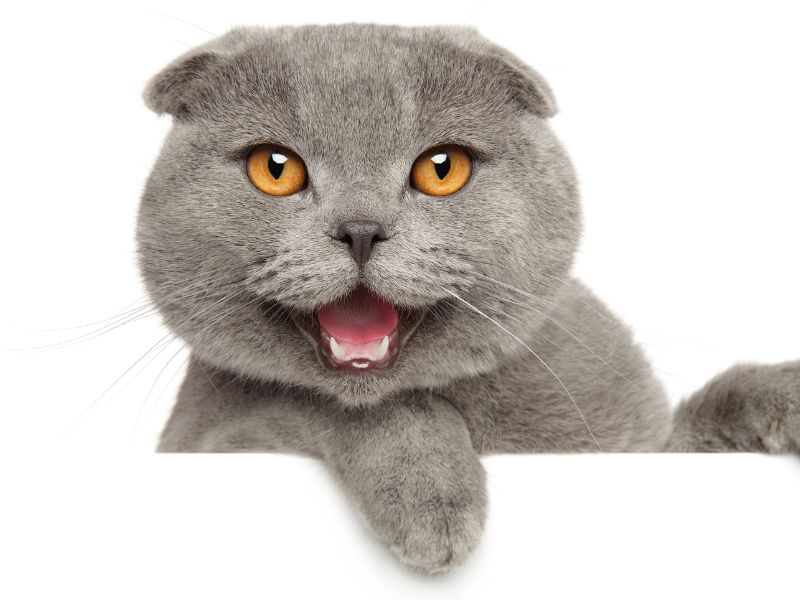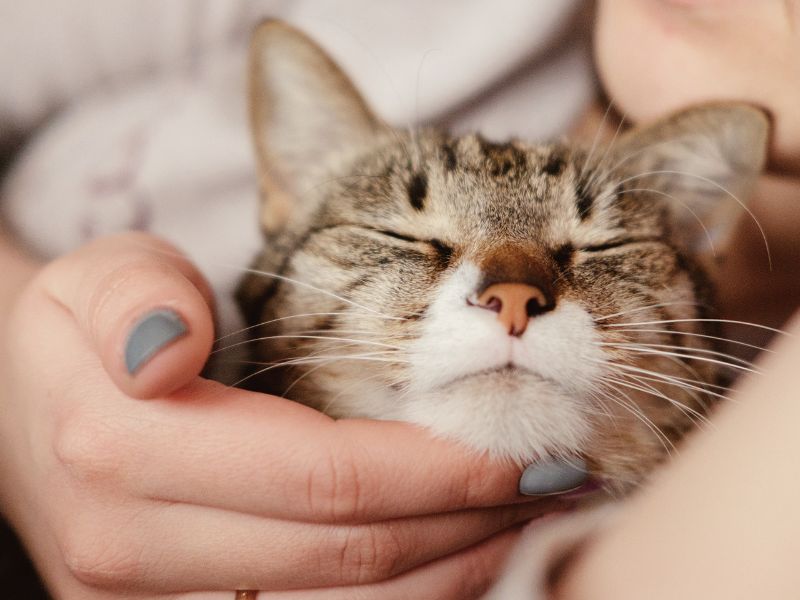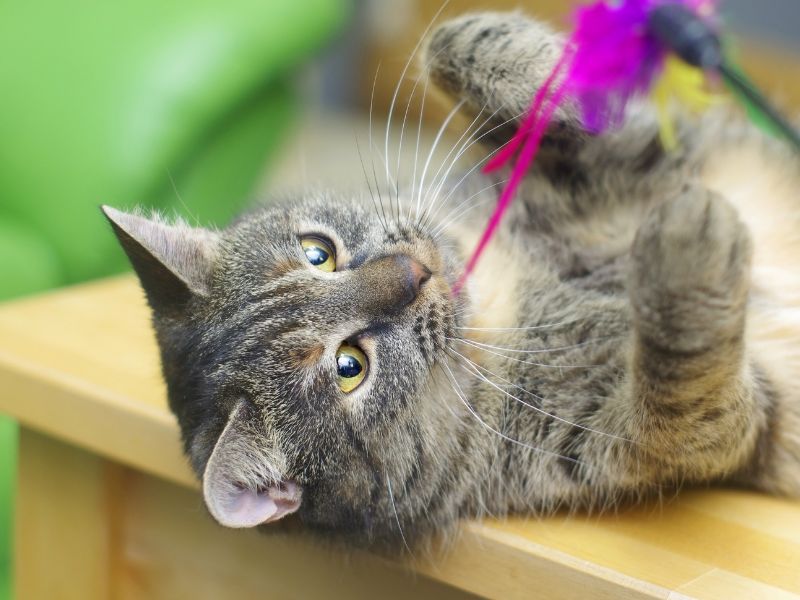As a cat owner, you want nothing but the best for your furry friend. You love them and want to see them happy and healthy. However, keeping your cat healthy and happy can be a challenging task. Cats are known for their independent nature, and it can be tough to understand their needs and desires. In this article, we will explore the best practices to keep your cat healthy and happy. From nutrition and exercise to mental and emotional stimulation, we will provide you with tips and tricks to keep your cat’s wellbeing in check. So, whether you are a first-time cat owner or a seasoned expert, read on and learn how to give your feline companion the best life possible.
The Importance of Keeping Your Cat Healthy and Happy
Cats are wonderful pets that bring joy and companionship to our lives. They are playful, curious, and loving animals that require proper care and attention to stay healthy and happy. As a cat owner, you have a responsibility to provide your cat with a safe and comfortable environment, nutritious food, regular exercise, and preventive healthcare. By doing so, you can ensure that your cat lives a long, happy, and fulfilling life.
Keeping your cat healthy and happy has many benefits. A healthy cat is more energetic, playful, and affectionate. They are less likely to develop health problems, such as obesity, diabetes, kidney disease, and dental issues. A happy cat is also less likely to exhibit behavioral problems, such as aggression, anxiety, and destructive behavior. By providing your cat with a healthy and happy lifestyle, you can strengthen the bond between you and your pet and enjoy many wonderful years together.
Understanding Your Cat’s Needs and Behavior
Cats are unique animals with their own personalities, preferences, and instincts. To keep your cat healthy and happy, it’s important to understand their needs and behavior. Cats are carnivores and require a diet rich in animal protein and fat. They also need access to clean water and a litter box that is changed regularly. Cats are also independent animals that require mental and physical stimulation to stay happy and engaged.
Cats are also social animals that require interaction and affection from their owners. They enjoy playing, cuddling, and grooming with their owners. However, cats can also be territorial and may exhibit aggressive or fearful behavior towards other cats or animals. It’s important to provide your cat with a safe and comfortable environment that allows them to express their natural instincts and behaviors.

Nutrition and Feeding Guidelines
Proper nutrition is essential for your cat’s health and wellbeing. Cats require a diet that is high in animal protein and fat and low in carbohydrates. A high-quality commercial cat food that meets the nutritional requirements of cats is the best option for most cat owners. However, some cats may require a special diet due to health issues, such as obesity, diabetes, or kidney disease.
When feeding your cat, it’s important to follow the feeding guidelines on the cat food label and to provide your cat with fresh water at all times. Overfeeding your cat can lead to obesity, which can increase the risk of health problems such as diabetes, heart disease, and arthritis. Underfeeding your cat can also lead to health problems due to malnutrition. If you are unsure about how much to feed your cat, consult with your veterinarian.
Exercise and Playtime for Cats
Cats are natural hunters and require exercise and playtime to stay healthy and happy. Regular exercise can help your cat maintain a healthy weight, reduce stress and anxiety, and prevent health problems such as obesity and diabetes. Playtime is also important for mental stimulation and bonding with your cat.
There are many ways to provide your cat with exercise and playtime. You can engage your cat in interactive play with toys, such as feather wands, laser pointers, and catnip toys. You can also provide your cat with scratching posts and climbing trees to satisfy their natural instincts. Regular playtime with your cat can strengthen the bond between you and your pet and provide both of you with hours of fun and entertainment.
Grooming and Hygiene Tips
Proper grooming and hygiene are essential for your cat’s health and wellbeing. Cats require regular grooming to keep their coats clean and healthy, prevent hairballs, and reduce shedding. Grooming also provides an opportunity to check for any signs of health problems, such as fleas, ticks, or skin irritations.
To groom your cat, you will need a brush or comb, nail clippers, and a cat shampoo if necessary. Brush your cat’s coat regularly to remove loose hair and prevent matting. Trim your cat’s nails every few weeks to prevent them from becoming too long and causing discomfort. If your cat has long hair, you may need to give them a bath occasionally to keep their coat clean and healthy.
Preventive Care and Regular Check-Ups
Preventive care is essential for your cat’s health and wellbeing. Regular check-ups with your veterinarian can help prevent health problems and detect any signs of illness early. Your veterinarian can also provide you with advice on nutrition, exercise, and preventive healthcare for your cat.
Preventive healthcare for cats includes vaccinations, flea and tick prevention, and dental care. Vaccinations can help prevent common infectious diseases, such as feline distemper, feline leukemia, and rabies. Flea and tick prevention can help prevent infestations and reduce the risk of disease transmission. Dental care, such as regular teeth brushing and dental cleanings, can help prevent dental disease and improve your cat’s overall health.

See Also: Why Do Domestic Cats Sleep So Much?
And: The Truth About Cat Separation Anxiety
Common Health Issues in Cats and How to Address Them
Cats can develop a variety of health problems, some of which can be potentially life-threatening. Common health problems in cats include obesity, diabetes, kidney disease, dental disease, and cancer. Symptoms of health problems in cats may include changes in appetite, weight loss or gain, lethargy, vomiting, diarrhea, and changes in behavior.
If you notice any signs of illness in your cat, it’s important to contact your veterinarian as soon as possible. Your veterinarian can perform a physical exam, run diagnostic tests, and provide treatment options to address your cat’s health problems. Early detection and treatment of health problems can improve your cat’s prognosis and quality of life.
Environmental Enrichment for Indoor Cats
Indoor cats require environmental enrichment to stay happy and healthy. Environmental enrichment includes providing your cat with mental and physical stimulation, such as toys, climbing structures, and hiding places. Environmental enrichment can help prevent behavioral problems, such as anxiety, aggression, and destructive behavior.
To provide your cat with environmental enrichment, you can provide them with toys, such as catnip toys, puzzles, and interactive toys. You can also provide your cat with a scratching post or climbing tower to satisfy their natural instincts. Hiding places, such as cardboard boxes or cat tunnels, can provide your cat with a sense of security and privacy.
Cat Behavior Training and Socialization
Cat behavior training and socialization can help prevent behavioral problems and strengthen the bond between you and your cat. Behavior training can help address common behavior problems, such as litter box issues, scratching, and aggression. Socialization can help your cat feel comfortable around people and other animals.
To train your cat, you can use positive reinforcement techniques, such as treats or praise, to reward good behavior. You can also provide your cat with a comfortable and safe environment to learn and explore. Socialization can be achieved by exposing your cat to new people and animals gradually and in a controlled environment.
Conclusion
Keeping your cat healthy and happy requires attention, care, and patience. By understanding your cat’s needs and behavior, providing proper nutrition, exercise, and preventive healthcare, and providing environmental enrichment and behavior training, you can ensure that your cat lives a long and happy life. Remember to consult with your veterinarian for advice on nutrition, healthcare, and behavior training for your cat. With proper care and attention, your cat can be your loving companion for many years to come.

